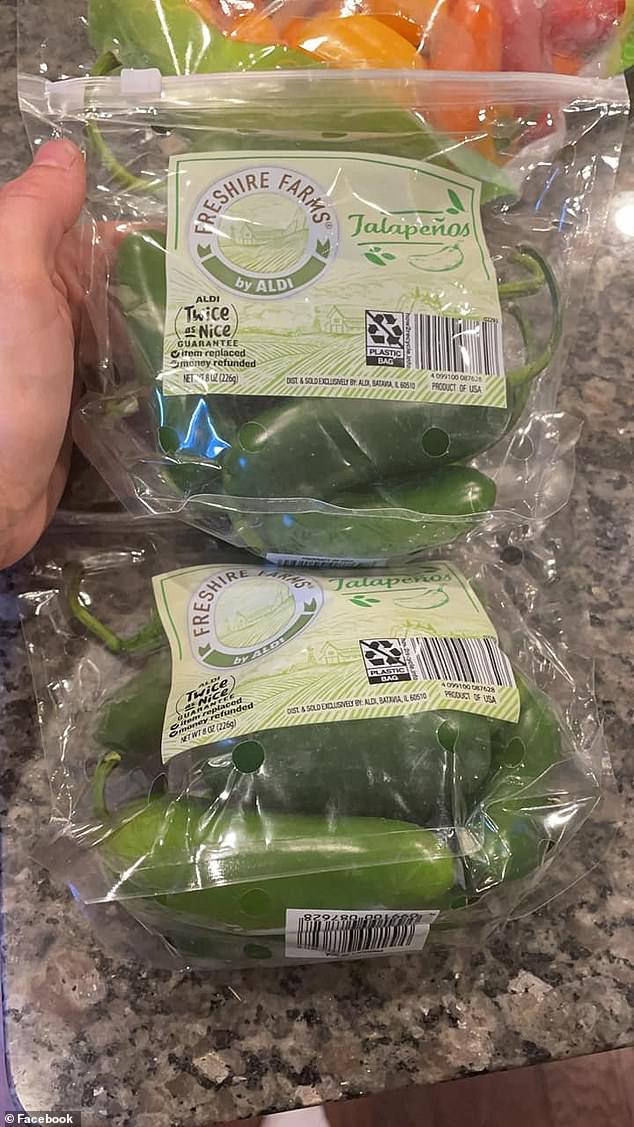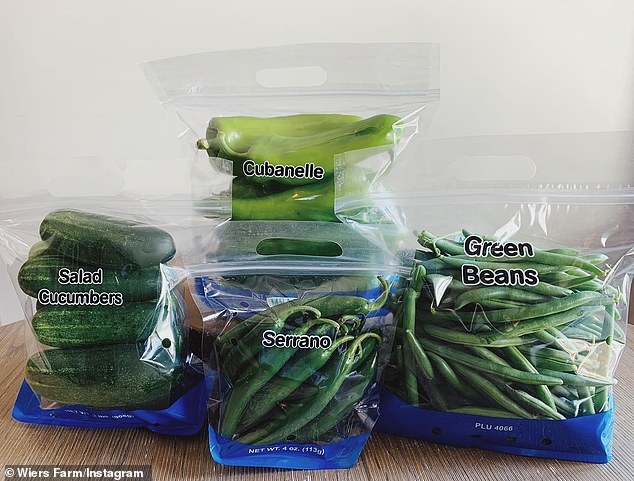A recall involving dozens of types of vegetables has been issued in several states in connection with a sometimes fatal illness.
Earlier this month, Ohio-based Wiers Farm Inc. voluntarily said some of its whole and bagged salad cucumbers sold at select Walmarts in Michigan, Indiana and Ohio may have been compromised.
Officials said the move was taken “out of an abundance of caution” and that they believed the product may have been contaminated with listeria monocytogenes.
The bacteria can cause a deadly infection known as listeriosis, an illness that FDA officials said Thursday prompted them to expand the recall. The products involved, they said, were packaged between July 5 and July 12. Now, the list of contaminated vegetables includes certain peppers, beans and squash.
The warning applies to Walmarts in 13 states, as well as supermarkets such as Aldi and Kroger.
A recall that previously affected only cucumbers has been expanded to include more products from around the country, such as these bagged vegetables seen here, all from Ohio-based Wiers Farms.

The warning applies to Walmarts in 13 states, as well as supermarkets like Aldi and Kroger. Pictured here is a Walmart in Kentucky (one of the states that was ordered to recall its products).
“Consumers who have consumed the affected products and experience symptoms such as fever, muscle aches and gastrointestinal problems should seek medical attention,” the FDA alert said.
“Consumers should discard the product(s),” he continued.
‘The product in question has already passed its expiration date and should already be out of distribution, but if consumers have a product that raises doubts, they should not consume it, but rather throw it away.’
The states where potentially contaminated vegetables may have been sold were primarily on the East Coast, at Walmarts in Connecticut, Delaware, Illinois, Indiana, Kentucky, Maryland, Michigan, New Jersey, New York, Pennsylvania, Ohio, Virginia and West Virginia.
As for Aldi, stores in Kentucky, New York, Ohio, Pennsylvania and West Virginia were told their produce could also be contaminated.
The recalled items include green beans, bell peppers, zucchini, jalapenos and more, as the recall was expanded to also include green beans and jalapenos sold under the Freshire Farms banner, an Aldi brand.
In total, 27 products were affected, some of which were sold individually or wholesale at Walmart, Krogers and Save-a-Lots nationwide.
No illnesses have been reported so far, but U.S. health officials are already investigating a fatal outbreak of listeria that arrived in the form of freshly sliced deli meat.

The recalled items include green beans, bell peppers, zucchini, jalapenos and more, as the recall was expanded to also include green beans and jalapenos sold under the Freshire Farms banner, an Aldi brand.

The bacteria can cause a deadly infection known as listeriosis, an illness that FDA officials said Thursday prompted them to expand the recall. The products involved, they said, were packaged between July 5 and July 12.
Two deaths and 28 hospitalizations are attributed to the virus in 12 states, with New York being the state with the highest incidence, with serious cases.
However, the people who died were from Illinois and New Jersey, as the feds continue to investigate what happened.
Those who ate the affected produce reported symptoms including fever, aches and pains and gastrointestinal problems — a fate that could await vegetable lovers in more than half the country if another outbreak occurs.
In a statement, Wiers Farm said it was taking “all necessary steps to fully resolve this situation” as listeria can be especially deadly for people over 65.
However, victims of the previous outbreak were between 32 and 94 years old. The average age of those affected was 75 years.
While they are now past their expiration dates and out of circulation, the new batch of potentially affected products could still be in the refrigerators and pantries of unsuspecting people.
Symptoms also include a feeling of having the flu, so be sure to read the full list of recalled products below.
More information, including what to do if you think you may have been infected, can be found on the FDA website.


